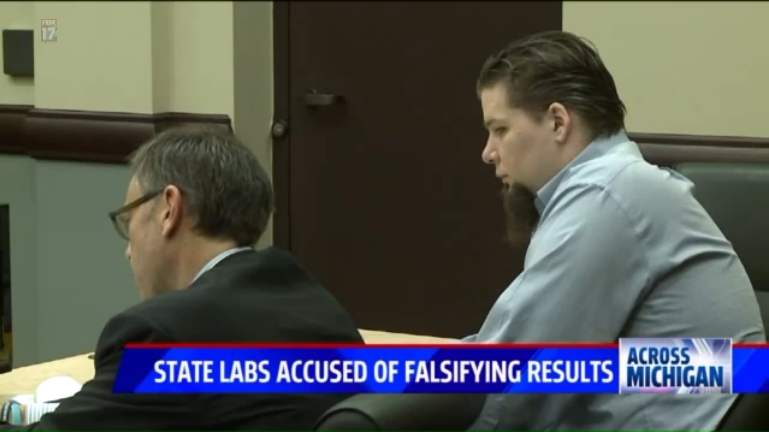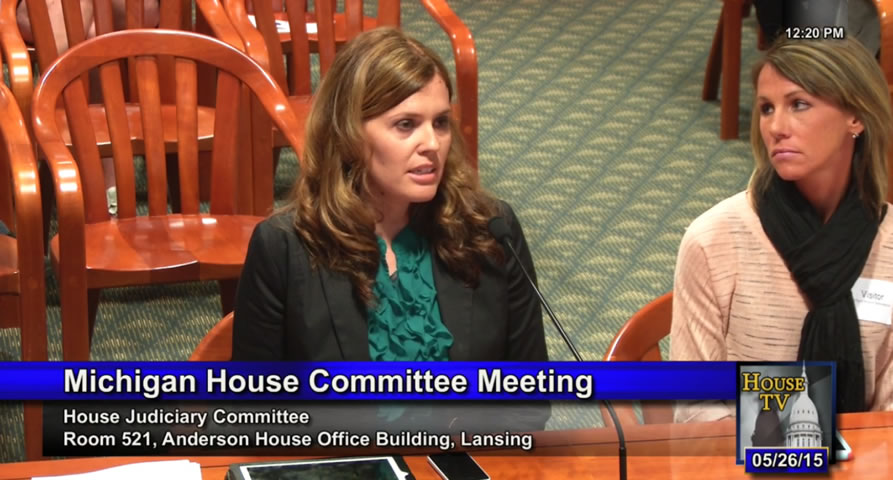
May 9, 2017 | Blog, Michigan Medical Marijuana Criminal Defense Attorney Michael Komorn, News, Uncategorized
One of the state’s most active medical marijuana specialist attorneys has been honored by the Criminal Defense Attorneys of Michigan (CDAM) with their “Justice For All” Award.

Of the thousands of criminal defense attorneys in Michigan, Komorn’s record of going after the big guy- and winning- propelled him into the top spot.
The award is described by CDAM below:
“The Justice for All award is given to recognize a particular extraordinary contribution of a group of individuals. This contribution can be in the form of legal representation or other extraordinary service.”
Komorn won a dismissal of charges in the Max Lorincz case, which involved a prosecution and removal of a child based on a tiny smear of alleged marijuana concentrate found by law enforcement.

This case, and Komorn Law’s digging into the back story, revealed the scientifically invalid and politically motivated changes in reporting marijuana concentrates as ‘origin unknown’ by the Michigan State Police Crime Lab.
The Lorincz case underscores what Komorn has been fighting for all along: an unyielding pursuit of the truth and exoneration for patients caught in a system designed to capture them.
Although the Lorincz case is the most recent and notable victory for Komorn Law, his other accomplishments stand out as well. Praise for Komorn’s career has been easy to obtain.
Some of Komorn Law’s highlights from 2015 include:
Having the entire Lapeer County Prosecutor’s office tossed off a medical marijuana case for being biased.
Challenging the Michigan State Police Crime Lab as they pervert scientific method to satisfy the political needs of prosecutors
Becoming involved as a Commission Member on the new Marijuana Law Section of the State Bar Association of Michigan
As well as many successful defenses of patients and caregivers registered with the Michigan Medical Marihuana Act (MMMA) in courts across Michigan.

Komorn is joined in his legal efforts by his longtime friend and aide, Chad Carr, who shares in the successes recognized by the Award Committee.
Komorn is also the Executive Director of the Michigan Medical Marijuana Association and the host of a weekly radio talk show dedicated to MMMA patients and the attorneys that represent them. The Planet Green Trees Radio Show has received notoriety nationally; interviews with legislators, scientists and attorneys for the past five years have offered revelations and brought clarity to what can be a very confusing medical marijuana program.
In the case of Max Lorincz, Michael was so moved by the unjust treatment of a man and his family, that he took the case pro-bono.
See the articles in the media
The Criminal Defense Attorneys have already posted the award notice and the dinner details. CDAM offers this description of their organization on the group’s website :
“Michael Komorn’s zealous advocacy and activism in the field of marijuana law has been impressive and has inspired many lawyers, including myself, to do the same through his accomplished example,” said Barton Morris, also a CDAM member.
“Michael is a pioneer and champion in marijuana law in Michigan.”

Apr 24, 2017 | Blog, News
In states that introduced a medical marijuana program, Medicaid prescriptions for anti-depressants, pain, anti-nausea, seizure and psychosis drugs fell
A fascinating study in Health Affairs last year by a father-daughter pair of public policy researchers found that Medicare prescriptions for things like painkillers, antidepressants and anti-anxiety medications dropped sharply in states that introduced a medical marijuana program.
The implication? Offered the choice between taking medication prescribed by a doctor and self-medicating with pot, many older patients opted for the latter.
But the study left one big question unanswered: Since the study’s authors – the University of Georgia’s Ashley Bradford and W. David Bradford – only looked at Medicare data, they couldn’t say for sure whether the findings held for younger patients too.
Now, we’re getting more answers. This week, the Bradfords are back with a new study applying the same analysis to prescriptions under Medicaid, which covers low-income people of all ages. The results largely validate their previous work: Medicaid prescriptions for certain drugs fell significantly in states that adopted a medical marijuana law.
Specifically, anti-nausea drug prescriptions fell by 17 percent. Anti-depressant prescriptions fell 13 percent, while prescriptions for seizure and psychosis drugs fell 12 percent.
Not everyone who has access to medical marijuana opts for it, obviously. But enough do to make a significant dent in the prescription numbers. “Patients and physicians in the community are reacting to the availability of medical marijuana as if it were medicine,” the Bradfords conclude.
Perhaps most significantly from a public health standpoint, prescriptions for painkillers fell by 11 percent. Opiate painkillers are behind much of the current drug overdose epidemic.
Numerous studies have found that opiate abuse and overdose rates fell in states with medical marijuana laws. The Bradfords’ research describes the mechanism by which that could happen: the introduction of medical marijuana laws coincides with a drop in painkiller prescriptions.
The Bradfords’ data only include prescriptions made under Medicare and Medicaid, but given the totality of their evidence it seems reasonable to assume that similar patterns hold true for patients on private insurance plans.
In the current budgetary environment, no analysis of healthcare is complete without a discussion of costs. The Bradfords estimate that because of the drops in prescribing rates, a nationwide medical marijuana program would save taxpayers about $1.1 billion on Medicaid prescriptions annually. That’s on top of the the half a billion in Medicare savings the Bradfords estimated last year.
Those costs don’t evaporate into thin air, of course: they would simply be shifted over to seniors and low-income people who would be purchasing medical marijuana outside of their insurance programs.
There’s also the open question of how smart it is from a personal health perspective to be self-medicating with pot: “it is plausible that forgoing medications with known safety, efficacy, and dosing profiles in favor of marijuana could be harmful under some circumstances,” the Bradfords warn.
Still, the Bradfords’ research makes the gulf between our current medical understanding of marijuana and federal policy around it even wider. Last summer the DEA affirmed yet again marijuana’s status in Schedule 1 of the controlled substances act, a category reserved for the most dangerous, addictive drugs that have no medical applications.
“This decision was made despite the substantial and growing evidence that the requirements for Schedule I status involving ‘no currently accepted medical uses’ are no longer met by marijuana,” the Bradfords write.
Study: National medical marijuana laws would save lives — and a billion taxpayer dollars
Published: Apr 21, 2017, 10:56 am By Christopher Ingraham, The Washington Post

Apr 24, 2017 | Blog, News
The number of citations for driving while under the influence of marijuana dropped by 33.2 percent in the first quarter of 2017 compared with the same period last year, but the number of people using marijuana and then driving continues to be a concern for Colorado officials.
“We’re still troubled by the fact that marijuana users are still telling us they routinely drive high,” Colorado Department of Transportation spokesman Sam Cole said Monday. “We’re pleased with the awareness, but we’re not so pleased with the behaviors that are actually happening.”
Cole said that in a survey conducted by CDOT, 55 percent of marijuana users said they believed it was safe to drive while under the influence. So three years ago when recreational marijuana was legalized, according to Cole, CDOT launched the “Drive High, Get a DUI” campaign to raise awareness that driving while stoned was illegal.
“There’s a lot of troubling information we’ve collected and many marijuana users indicate they drive high and they don’t think it’s a danger,” Cole said. He added that among survey respondents who said they used marijuana within the last 30 days, “Fifty percent of marijuana users say they have driven high.”
Despite CDOT’s concerns and what marijuana users might think, the Colorado State Patrol reported that from January to March of 2017, 155 people were cited for marijuana-use-only impairment while driving, compared to 232 cited from January to March of 2016. The number of citations noting combined alcohol and marijuana use also declined, with 50 in the first quarter of 2017 compared with 69 in the first three months of 2016.
“Are the citations going down? Yeah, but is the number of people using marijuana and then driving going down? I don’t know how to quantify that,” said Nate Reid , a CSP spokesman. “This is just after the officer stop. This isn’t post-conviction or after they may have been arrested.”
Recreational marijuana use might be somewhat new, but troopers have great experience detecting impaired drivers, Reid said.
“We’ve been arresting for marijuana for a long time,” he said. “There’s no sure sign somebody is impaired by alcohol or drugs. It’s the trooper’s personal contact after a stop, along with their driving behavior. Troopers have been trained in advance for detecting alcohol and marijuana and other prescription drugs.”
During the month of March in 2016, marijuana-related citations made up 17.8 percent of 337 total DUIs. In March 2017, marijuana-related citations made up 16.4 percent of 396 total DUIs. There was a year-over-year decrease from seven to three fatal alcohol- and drug-related crashes in the same span.
With 4/20 just around the corner and thousands of marijuana users planning to commemorate the day in downtown Denver, CDOT, CSP and other organizations are encouraging people to have a fun, but safe celebration.
“Take the high road this 4/20, and don’t DUI!” a release from CSP said. “The Colorado State Patrol will be in full force this 4/20 week encouraging the public to get a safe ride home and not drive impaired.”
CDOT has partnered with ride share companies to offer discounted rides on Thursday and started the “320 Movement” with Lyft, where a fleet of 17 vehicles were wrapped in green “Plan a ride before you’re high” messaging. The goal is to encourage marijuana users to plan ahead for a safe and sober ride leading up to 4/20.
“We have a lot of opportunities this week and the next four days to introduce behavior changes to marijuana users during 4/20 so they can get in the habit of planning for a safe ride home,” Cole said. “We want 3/20 to be as synonymous with safety as 4/20 is with having a good time.”
Hayley Sanchez
Hayley Sanchez covers the city and metro area for The Denver Post. After tracking homicides in Washington, D.C., for D.C. Witness, she was a reporter for The Bulletin in Bend, Ore., covering Central Oregon’s breaking news, education, marijuana and more.
Colorado marijuana DUIs drop 33 percent in the first quarter of 2017 compared with last year, but officials still concerned

Apr 9, 2017 | Blog, News
OAKLAND COUNTY, Mich. – The owner of an Oakland County medical marijuana dispensary said he’s been unfairly targeted by police in the form of raids and civil forfeitures.
Meanwhile, police said they’re just enforcing the law.
The case sits at the forefront of the fight to legalize marijuana in Michigan.
Investigators close to the case said Donald Barnes is a marijuana dealer hiding behind medical marijuana laws, but Barnes said the dispensary raided by police is a nonprofit that he has no ownership in. The legal battle has gone on for almost three years, and Barnes’ money and property is still tied up in a forfeiture battle.
Barnes insists he is the victim of overzealous police.
“It was two days before Christmas, and we started Christmas shopping already,” Barnes said. “They seized the Christmas gifts.”
He claims officials wrongfully raided his business and seized pot, property and bank accounts.
“They seized personal assets, not just my business bank accounts, but they also seized stuff from my home and my personal properties,” Barnes said.
Barnes was eventually given criminal charges.
“They arrested me and told me I was being charged with selling marijuana because I owned a dispensary,” Barnes said.
But police told a different story. They stand behind the raids, forfeiture and criminal charges, saying it wasn’t a medical marijuana operation for the sick but a large-scale pot-for-profit operation.
The two sides ended up in the courtroom, where Barnes scored a victory.
“In this case, the Oakland County Circuit Court, I think, called the Sheriff’s Department on their tactics and pointed out that they clearly had no justification to do what they did to Mr. Barnes or his business,” attorney David Moffitt said.
Moffitt said when the judge invalidated the search by police and dismissed the criminal charges against Barnes, it sent a strong message and should convince police to give Barnes his money and property back.
“You know, if you go around and you frighten people in this fashion and take their assets and tell them (that) if they just let that go then they won’t be prosecuted,” Moffitt said. “If it weren’t being done by people with badges, it would be called extortion.”
Prosecutors and police said the judge’s ruling was wrong. They’re appealing, so the controversy is far from over.
“I mean, this is Oakland County, one of the richest counties in the country,” Barnes said. “There’s not too many people that are going to be able to push them around. They push people around.”
A judge has ruled that $10,000 seized from Barnes be returned to him. A hearing to resolve the rest of the forfeited property was adjourned Wednesday and moved to August.
In some states, property cannot be forfeited until a person is convicted, but in Michigan, the property is taken and returned if a person is found not guilty.
Copyright 2017 by WDIV ClickOnDetroit – All rights reserved.
Donald Barnes says police unfairly seized assets
By Kevin Dietz – Reporter , Derick Hutchinson
Posted: 6:01 PM, April 05, 2017Updated: 6:01 PM, April 05, 2017
http://www.clickondetroit.com/news/defenders/oakland-county-marijuana-dispensary-claims-it-was-unfairly-targeted-by-police

Apr 8, 2017 | Blog, News
In the annals of wrongful convictions, there is nothing that comes close in size to the epic drug-lab scandal that is entering its dramatic final act in Massachusetts.
About 23,000 people convicted of low-level drug crimes are expected to have their cases wiped away next month en masse, the result of a five-year court fight over the work of a rogue chemist.

Annie Dookhan was arrested outside her home in Franklin, Massachusetts, in 2012. Bizuayehu Tesfaye / AP, file |
“It’s absolutely stunning. I have never seen anything like it,” said Suzanne Bell, a professor at West Virginia University who serves on the National Commission of Forensic Science. “It’s unbelievable to me that it could have even happened. And then when you look at the scope of the number of cases that may be dismissed or vacated, there are no words for it.”
The dismissals will come in the form of filings from seven district attorneys ordered by the Massachusetts Supreme Judicial Court to decide who among 24,000 people with questionable convictions they can realistically try to re-prosecute.
Their answer, due by April 18, is expected to be “in the hundreds,” a spokeswoman for Middlesex County District Attorney Marian Ryan said this week. An exact number was not available because the prosecutors are still working through the list, the spokeswoman, Meghan Kelly, said in an email.
The development was first reported by the Boston Globe.
Related: How One Texas County Drove a Record Rise in Exonerations
The prosecutors didn’t want the scandal to end like this. They fought for a way to preserve the convictions, and leave it to the defendants to challenge them.
Civil rights groups and defense lawyers argued for all the cases to be dropped, saying that was the only way to ensure justice.
The state’s high court chose its own solution, ruling in January that district attorneys should focus on a small subset of cases it wanted to retry, and drop the rest.
It has taken five years to get to this point, longer than it took to discover, prosecute and punish the chemist, Annie Dookhan. She worked at the William A. Hinton State Laboratory Institute in Boston for nearly a decade before her misconduct was exposed in 2012. She admitted to tampering with evidence, forging test results and lying about it. She served three years in prison and was released last year.
By then, most of the people Dookhan helped convict — most of whom pleaded guilty to low-level drug offenses based on her now-discredited work — had finished their sentences.
Is not entirely clear why Dookhan, a Trinidadian immigrant mother, felt compelled to change test results on such a massive scale. She was by far the lab’s most prolific analyst, a record that impressed her supervisors but also worried her co-workers — a red flag that went overlooked for years. She seemed driven to stand out, even if it mean lying, former colleagues have said. She also maintained friendly relationships with prosecutors, even though her role was to remain objective.
Many of those convicted through Dookhan’s work likely did commit the offenses, but many did not, defense lawyers say. All of them are now burdened with dubious convictions that have made it difficult to find jobs and housing or to obtain student loans, the lawyers say. Some defendants were convicted of more serious crimes, and the drug convictions were used to stiffen their sentences. Non-citizens have been threatened with deportation.
Civil rights advocates say the case has exposed the folly of aggressive enforcement of low-rung drug offenders, many of whom are addicts in need of treatment. “It’s a soup-to-nuts indictment of the war on drugs,” said Matthew Segal, legal director of the American Civil Liberties Union of Massachusetts, whose lawsuit led to the supreme court’s ruling. “These scandals happen around the country because our war on drugs is based on cutting corners.”
The reliance on forensic science in the criminal justice system has improved policing and prosecutions, but the misuse of science has also fueled wrongful convictions, researchers say. Drug labs play a distinct role in that machinery.
Related: Rogue East Cleveland Cops Framed Dozens of Drug Suspects
Lab scandals have undermined thousands of convictions in eight states in the past decade, according to data maintained by the National Association of Criminal Defense Lawyers. Critics say forensic chemists feel a duty to help prosecutors rather than remain neutral. And they point out that many labs — including Hinton when Dookhan worked there — lack professional accreditation or proper protocols to prevent and detect misconduct. Some of her superiors have lost their jobs for failing to notice or report her misdeeds.
“This drug lab scandal is another example of why the criminal justice system needs to reform its approach to forensic science,” said Dan Gelb, a Boston attorney who helped write an amicus brief on the Dookhan case for the National Association of Criminal Defense Lawyers. “Labs shouldn’t be an extension of law enforcement.”
Because of the system’s reliance on plea bargains to keep cases moving, defendants often don’t have a chance to challenge results from drug labs, Bell added.
That’s become a big point of discussion at the National Commission of Forensic Science, she said. But the commission, which was formed by the U.S. Department of Justice in 2013, is facing an uncertain future, with no clear message from the Trump administration if its work will continue to be funded, Bell said.
The Dookhan case awakened Massachusetts to the crisis, Bell said.
But the end of the Dookhan saga will not bring the end to Massachusetts’ problems.
That’s because it is dealing with a second scandal, at a second lab, this one the result of a chemist who admitted to doing drugs — including an array of substances submitted as evidence — while on the job.
Thousands of convictions in that case are now in doubt.
http://www.nbcnews.com/news/us-news/stunning-drug-lab-scandal-could-upend-23-000-convictions-n739626

Apr 8, 2017 | Blog, News
In January 2013, police raided the home of a Cleveland drug dealer, saying in a search warrant that an informant had recently bought crack cocaine there.
But the drug dealer had surveillance cameras that proved the officers were lying. He gave the tapes to his lawyer, who showed the FBI. The feds then worked to uncover a massive scandal of a rogue street-crimes unit that robbed and framed drug suspects who felt they had no choice but plead guilty to fraudulent charges.
Four years later, authorities are still unwinding the damage.
Three cops who worked for the city of East Cleveland are in prison. Cases against 22 alleged drug dealers have been dismissed. Authorities are searching for another 21 people who are eligible to have their convictions tossed. On top of those injustices, there is a slim chance that any of them will be fully reimbursed, because the disgraced officers and their former employer don’t have the money.
“I always took it on the chin when I got arrested for something I know I did. But when a cop lies to get you in prison, that’s a different story,” said Kenneth Blackshaw, who was arrested in a 2013 traffic stop and spent two years behind bars before his drug conviction was overturned.
The detectives, Blackshaw said, knew just who to target: people with long criminal records who knew their word would never stand up against a police officer’s. He is trying to recoup all that he lost, including $100,000 the cops took from his home in an illegal search.
“A person like myself doesn’t stand a fighting chance for his freedom when he stands accused of something he didn’t do,” Blackshaw, 51, said.
Drugs, race and graft
The Cleveland-area victims are among thousands of people who have been exonerated in cases involving police graft over the last three decades countrywide, from California to Texas, and from New Jersey to Ohio. In Philadelphia, more than 800 people have had their convictions dismissed. The Rampart scandal in Los Angeles in the late 1990s led to at least 150 tossed cases.

Former East Cleveland Police Officers, clockwise from left: Torris Moore, Antonio Malone, and Eric Jones. FBI; Cuyahoga County Sheriff; East Cleveland Police.
These “group exonerations” are distinct from the stories of people cleared by DNA or new evidence, a movement led by crusading lawyers who dig into individual cases to expose faulty forensics, false confessions, mistaken identities and official misconduct.
Group exonerations rarely attract much attention outside of the communities where they occur. They typically involve people convicted of relatively minor crimes that resulted in short prison sentences or terms of probation. The victims often have criminal records and, if not for the corrupt methods that led to their convictions, may actually have been guilty of a crime.
There is no official record of group exonerations, and researchers believe that in some police corruption scandals, authorities don’t bother to identify tainted convictions — or tell victims they could be cleared. Even so, the number of people wrongly convicted under such circumstances likely exceeds the more than 2,000 individual exonerations recorded since 1989, according to the National Registry of Exonerations.
The vast majority of victims are black — a result that points to national trends in American drug-law enforcement researchers at the registry said in a report issued last month. “As any forger knows, the way to create convincing fakes is to make them look like the real thing,” the report’s authors wrote. “For drug cases, that means arresting mostly black suspects.”
The impact is profound. Group exonerations not only undermine crime fighting efforts, but also destroy faith in police and fuel the belief that the justice system treats poor, minority communities unfairly.
“What I saw in this case is a legitimate reason for these folks to have these feelings toward law enforcement,” said Assistant U.S. Attorney Ed Feran, who prosecuted the East Cleveland officers.
Setups and thefts
East Cleveland is a city in distress, much more so than Cleveland, its larger Rust Belt neighbor. More than 40 percent of its 17,843 residents live in poverty, almost all of them black. Mass demolitions of abandoned homes has left the 3-square-mile city pocked with vacant lots. The median household income is $19,592. The local government is near bankruptcy.
That is the atmosphere in which the rogue street crimes unit operated.
After the FBI got tipped-off in early 2013, agents had the drug dealer who caught officers lying about buying crack at his house wear a wire. His secret recordings caught one of the officers shaking him down for $3,000 during a traffic stop.
From there, investigators uncovered more frame-ups and thefts. They documented several of them in an October 2015 indictment that charged the rogue unit’s commander, Torris Moore, and two underlings, Antonio Malone and Eric Jones, with illegally searching and stealing from alleged drug dealers and faking reports to cover up their crimes.
The indictment included charges that the officers had arrested an alleged drug dealer identified as K.B. The following day, while K.B. sat in jail, the indictment said, the officers broke into his room at his grandmother’s house and took $100,000, keeping a third of it and turning in the rest.
Blackshaw did not know his case was under investigation. He learned of the officers’ arrest by watching the news in prison. He called home and an aunt told him she’d already talked to his lawyer. “We’re working on getting you out of there,” he recalled her saying.
A feeling of vindication washed over Blackshaw. He had agreed to go to prison even though he didn’t think his arrest was legitimate. He has a long history of drug offenses, and his charge, possession of more than 100 grams of cocaine, carried a mandatory minimum sentence of 11 years behind bars. He maintains he did not have any drugs on him when he was busted.
He’d told his lawyer he wanted to go to trial. But his lawyer, Terry Gilbert, had advised against it, reminding him that it would be his word against the officers’. So Blackshaw pleaded guilty to a lesser charge and received a five-year prison sentence.
“Neither of us ever dreamed that these cops could be crooked enough to steal money and lie about it, and even if they did, who would believe Kenneth Blackshaw?” Gilbert recalled. But, as it turns out, the officers lied in the police report and to prosecutors while defending their illegal search.
‘Legally innocent’
Most of the victims mentioned in the federal indictment didn’t have private lawyers to push for their release. But the Cuyahoga County Prosecutor’s Office had just formed a Conviction Integrity Unit, which helped make sure all of the convictions were vacated. Blackshaw was released from prison in February 2016.
All three officers were sentenced to prison: Moore got nine years, Malone six and Jones nearly four. In a tearful courtroom apology, Moore said she’d turned rogue in 2011.
That revelation prompted the Conviction Integrity Unit to review all of the officers’ work since 2011. They came up with dozens of suspect cases. In some, the officers cited the use of confidential informants without proving their existence. In others, money used for undercover drug purchases, or money seized in arrests or raids, was not properly logged, raising questions about where the cash ended up.
Each of the defendants, like Blackshaw, had pleaded guilty. Now they were all eligible to have their cases dismissed.
Some of the victims had likely committed drug offenses. But because the entire process was corroded, the cases could no longer be defended in court. Justice required their dismissal.
“We didn’t go all the way to determine whether they were factually innocent or not,” Jose Torres, who heads the unit, said. “We were convinced that they were legally innocent, and that’s enough for us.”
Search for victims
So far, authorities have identified 43 people whose convictions deserved to be tossed. But in order for that to happen, they or a lawyer representing them needs to appear in court to ask a judge to dismiss the charges.
Working with the county public defender’s office, they’ve only been able to dismiss convictions for 22 people, Torres said. They’ve tracked down a couple of others who are expected to appear in court soon. The rest either haven’t been found or don’t want to come forward.
In each case, defense lawyers have insisted on protecting the victim’s right to sue for damages. But whether they get any award remains to be seen.
Blackshaw, out of prison for more than a year, says he’s trying to start a commercial cleaning business. He is grateful to be released, but he lost two years of freedom.
And he is still fighting for the rest of his money.
http://www.nbcnews.com/news/us-news/rogue-east-cleveland-cops-framed-dozens-drug-suspects-n736671










